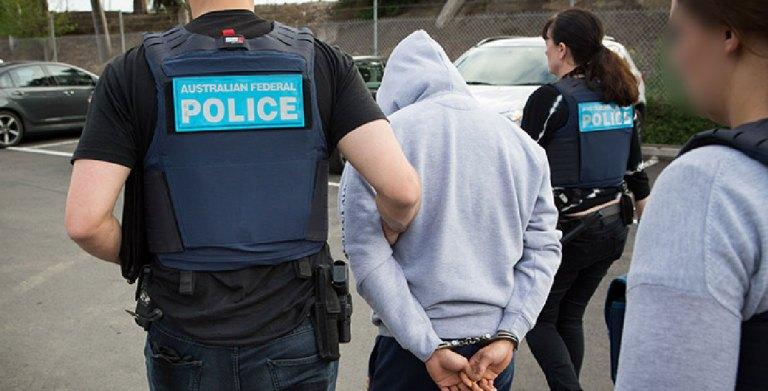Africa-Press – Mauritius. Barrister Akil Bissessur alleged in reply to a question put to him by Sunday Times, dated 5 Sep 2021, that he had requested the police to conduct an inquiry to check the veracity of his allegations against Mauritius Telecom’s CEO before they decide to put him under arrest.
Would it have been perfectly in order if the police had proceeded to arrest him? Mr Bissessur is right. In 1989, late Judge Robert Ahnee and former Supreme Court Judge Vinod Boolell ruled that ‘a police officer effecting an arrest must take into consideration the totality of the circumstances including the explanations of the suspect and the motive of the declarant.
‘We feel that whatever suspicion the police may harbour against the suspect should be weighed against any factors which tell in favour of the suspect. A total neglect of the explanations that the suspect may have to offer may well lead to the conclusion that the suspicion is not reasonable. ’
* It appears that, in response to Mr Bissessur request for a proper inquiry into his allegations, the police put forward the argument that it sufficed that the Mauritius Telecom’s CEO felt that those allegations had caused him prejudice (‘s’était senti prejudiced’) for the police to take the necessary action in those circumstances.
How do you react to that? In 2015, the Supreme Court of India observed: ‘Every expression used [in the law] is nebulous in meaning. What may be offensive to one may not be offensive to another.
What may cause annoyance or inconvenience to one may not cause annoyance or inconvenience to another… Information that may be grossly offensive or which causes annoyance or inconvenience are undefined terms which take into the net a very large amount of protected and innocent speech.
’
In 2019 the Kenya High Court ruled that a similar provision to ours was couched in such broad and unclear terms thereby making it subject to the arbitrary and subjective interpretation by the police or the prosecution.
* From a legal perspective, is there any defining difference between prejudice and annoyance? It is difficult to say.
In 2015 the Indian Supreme Court considered a similar provision of our ICTA law and ruled in a 100-page judgment that the law was “vague in its entirety” and in violation of existing free speech laws.
* As regards annoyance, there is the important ruling of Justices D. Chan Kan Cheong and K. D.
Gunesh-Balaghee in the matter Seegum J v The State of Mauritius, which found that Section 46(h)(ii) of the ICTA Act (“as it stood at the time of the commission of the present offences”, that is in 2012), in relation to the offence of using an information and communication service for the purpose of causing annoyance, for which Vinod Seegum was prosecuted, “unconstitutional”, and “in breach of the principle of legality implied under section 10(4) of the Constitution”.
Would Mr Bissessur have been charged with the same offence as Mr Seegum in spite of the Court’s ruling? If he is so charged, he can ask the lower court to refer the matter to the Supreme Court for an opinion.
Or the lower court itself can follow the ruling of Judges Chan and Gunness-Balaghee to throw the case out if there is a prosecution. * What are the legal grounds for police arrests and detention?
The police must have reasonable suspicion that an offence has been committed. In other cases the police can arrest somebody if he breaches his condition of release on bail or does not comply with a probation or community service order imposed by a court.
* We have witnessed a new pattern in the conduct of the police which is to rush in to arrest an individual on a mere complaint of a minister or a government sympathiser?
The police have wide powers of arrest. In exercising these powers, they should not be at the beck and call of anybody and least of all the government of the day or individual members of the government. They do not have to follow the orders, directives or instructions of anybody including politicians.
Section 71 (4) of the Constitution clearly provides that the Commissioner of Police shall not, in the exercise of his responsibilities and powers with respect to the use and operational control of the force, be subject to the direction or control of any person or authority.
The only exception to this is general directions of policy with respect to the maintenance of public safety and public order that may be given to the Commissioner by the Prime Minister.
* One of the tactics that the police use to keep someone in detention is to oppose his release when the person is taken before the magistrate? Why is that so?
This is a very interesting question. When arrests are done without any solid legal basis, the only way out for the police is to oppose release either conditionally or unconditionally.
If the police know that the arrest is hardly justified, they would oppose release for any reason so that they can keep the arrestee in detention as a punishment or a warning’ especially if the arrest is politically motivated.
It is a form of harassment. * We understand that illegal detention occurs when people are arbitrarily arrested or imprisoned without charge or trial for an indefinite amount of time.
But are there not circumstances when it is necessary for the police to proceed with preventive arrests and detentions? The police can arrest somebody to prevent disorderly conduct or a breach of the peace.
This would be a sort of preventive measures. But, in general, arrest as a preventive measure is not allowed except in a period of public emergency. * Given the increasing complexity of different crimes and hardened criminals out there, shouldn’t the police be allowed some leeway in tackling crime?
Even the worst of criminals is entitled to a fair treatment. The Nazis committed a lot of atrocities during the Second World war and yet they were given a fair trial.
Many were convicted and sentenced to death but some were acquitted. We cannot apply different standards in the treatment of offenders. * If police arrests and detention are not in all circumstances against the law, what would constitute unlawful detention and imprisonment?
Under section 5(1) (e) of the Constitution, a person may be deprived of his liberty upon reasonable suspicion of his having committed, or being about to commit, a criminal offence.
The all-important words are reasonable suspicion. As far back as 1989, late Judge Robert Ahnee and former Judge Vinod Boolell explained what reasonable suspicion mean. This is what the judges said:
‘…the basis of the involvement of the suspect must reveal more than a mere hunch on the part of the police, and this whether the arresting officer of his own volition harbours suspicion towards the suspect or whether it is provoked by a witness or an informant.
Were it otherwise, any citizen of this country might run the risk of falling a prey to blackmailers or those who can be made to level charges against anybody according to their whims or caprices.
’ If there were no basis for the arrest and detention, it will be unlawful.
* What are the rights of a detained person? When the police arrest an individual, they have to inform him of the reason for his arrest.
This is a constitutional obligation placed on the shoulders of the police. They have to explain in clear language to the arrestee why he is being deprived of his freedom. This obligation does not depend on the whim of a police officer but is a constitutional requirement.
Section 5 (2) of the Constitution provides: ‘Any person who is arrested or detained shall be informed as soon as reasonably practicable, in a language that he understands, of the reasons for his arrest or detention.
’
Under the Constitution any person who is arrested or detained and who is not released, shall be afforded reasonable facilities to consult a legal representative of his own choice and shall be brought without undue delay before a court of law.
The police can refuse access to a lawyer if they can clearly establish that the presence of the lawyer will hinder the investigation. They need to have solid evidence to justify denial of access to a lawyer.
* Can you sue for unlawful arrest and detainment and obtain some form of compensation? Yes certainly. That will be a tort and a civil action would be possible. * Is unlawful detention the same as false imprisonment?
Detention is a process wherein an individual has his freedom temporarily withdrawn either legally or illegally by the police generally. He is confined in a police cell or in a remand centre.
Detention may be legal or illegal depending on the facts leading to the detention. False imprisonment is where an individual has been convicted by a court of law which has sentenced him to imprisonment without proper evidence.
False imprisonment may be equated to sequestration as in the case of somebody who is kidnapped and kept at the place of an individual without being able to move. In practical terms, both situations restrict the freedom of movement of the individual.







